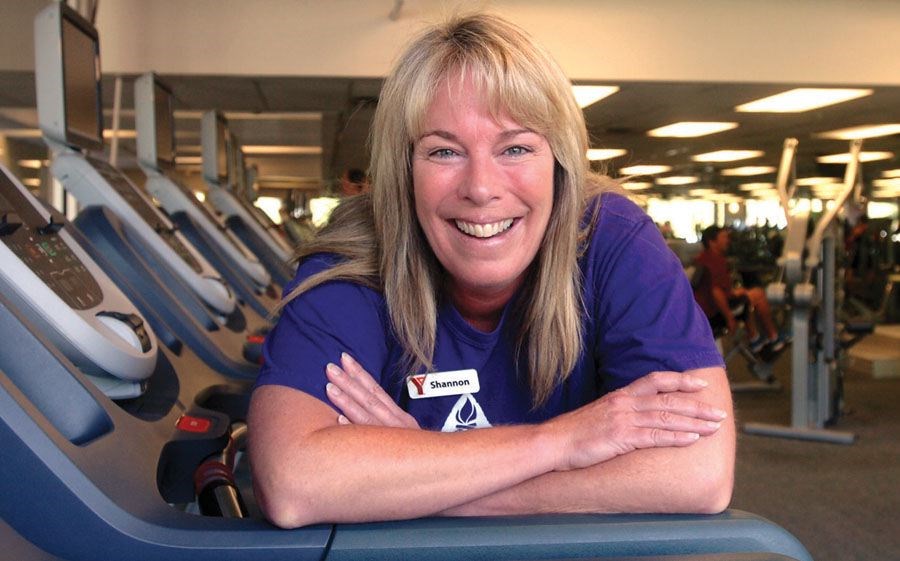With northern B.C.'s resource economy booming, more and more people are finding themselves working and temporarily living on camp sites. Maintaining a fitness regime while away from the comforts of home can be difficult, but YMCA of Northern B.C. fitness co-ordinator Shannon Johnson said it's important for both personal health and workplace safety.
Johnson said it's important for workers to maintain a high level of agility so they can get themselves out of a dangerous situation, should one arise.
"If you find yourself in an emergency situation, you have that response that's going to save you from a potential injury," she said.
Maintaining or even improving agility levels and overall fitness while on a camp job is something that can be accomplished with very basic equipment and limited space, according to Johnson.
For agility, it's as simple as repeating a pattern of movements over and over again and then changing up the pattern to add to the challenge.
A small fitness centre need only be equipped with some bands, weighted balls and risers. Once that's in place, Johnson said workers can encourage each other in workout challenges. Even something like TRX, a piece of hanging equipment used for suspension training, can be easily transported from one location to another.
"Making up your own little fitness circuit or mini boot camp, that could be an opportunity for people to maintain their health and their fitness," Johnson said.
Depending on the camp, there could also be opportunities to take advantage of the natural environment in the region and go for hikes.
Some camp jobs involve a lot of sitting while operating machinery, so Johnson recommended taking every available opportunity for stretch breaks - for example taking a roundabout route to the washroom to get in some extra walking.
"Sedentary jobs make it difficult to manage a fitness level, but it's important that we take responsibility for ourselves and take that break," she said. "We'll tend to do things for other people first before we do it for ourselves."
Along with keeping active on the work site, Johnson said it's also important to eat right while away from home. Sometimes it comes down to making small choices, like foregoing butter on bread or choosing a broth-based soup rather than a cream-based option. She also recommends eating plenty of fruits and vegetables, drinking lots of water and staying away from energy drinks.
"There's no need for energy drinks," she said. "There are natural ways to hydrate your body and to increase your energy levels and alertness and exercise is one of them."
Ignoring proper nutrition and exercise can cause a host of health problems down the road, which could impact someone's ability to work. Johnson said men are particularly vulnerable to putting things off far too long.
"Men don't necessarily have the self-awareness," she said. "If they have concerns, they tend to ignore them because it would affect their work and work is what they're there to do - they need to provide for their families."
Johnson said some workers go into the camp setting with the idea that they're invincible and that problems that afflict others won't impact them.
"That serves well in some of the extreme work situations that people are in, when they're working long days and hard jobs," she said. "However we have to realize what our limitations might be physically, mentally, emotionally and spiritually."



